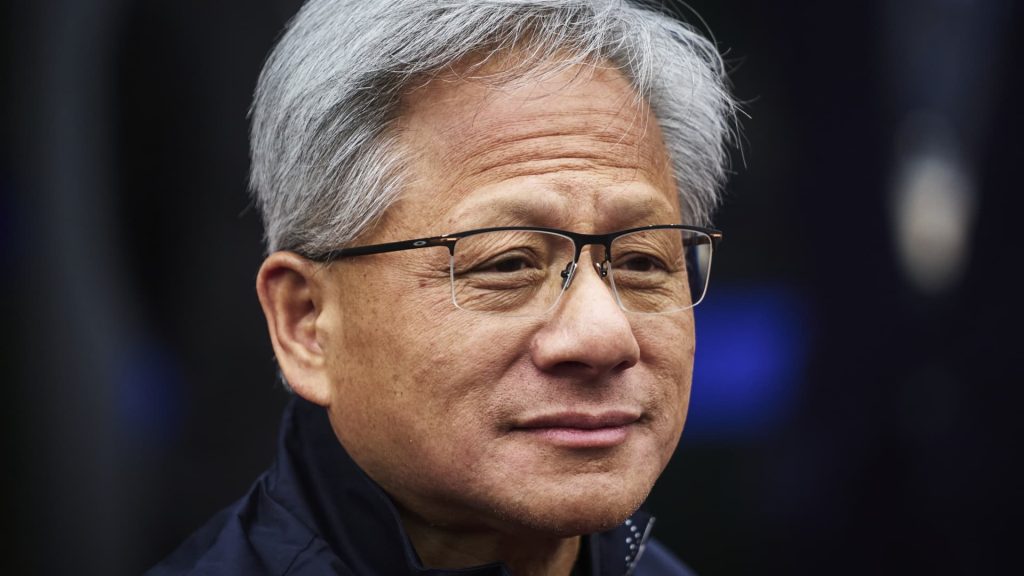Nvidia Corp., a leader in artificial intelligence (AI) technology, is facing significant scrutiny regarding its export practices, particularly in relation to its H20 chip. This comes as the company disclosed it would incur $5.5 billion in losses tied to canceled orders, coinciding with the U.S. government’s release of new licensing requirements for exports to China. Amidst a Congressional investigation exploring national security threats, Nvidia has affirmed its compliance with all regulatory mandates, while simultaneously highlighting its contributions to the U.S. economy.
| Article Subheadings |
|---|
| 1) Nvidia’s Financial Struggles Amid Export Challenges |
| 2) Compliance with U.S. Regulations |
| 3) Recent Congressional Investigation |
| 4) Market Impact of H20 Chips |
| 5) Future Prospects for Nvidia |
Nvidia’s Financial Struggles Amid Export Challenges
On January 16, 2025, Nvidia revealed that it would incur losses amounting to $5.5 billion due to canceled orders for its H20 chip, a situation complicated by new export restrictions imposed by the U.S. government. The company has stated that the H20 chip requires a license to be exported to China, marking a pivotal moment for the organization as it reassesses its global sales strategy. The cost implications are significant, considering that the chip is a critical component in AI applications, a sector where Nvidia holds a commanding market presence. Reports indicate that the company’s stock price experienced a substantial decline of nearly 7% the day prior to this announcement, reflecting investors’ concerns regarding the implications of these regulatory changes on Nvidia’s financial health.
Compliance with U.S. Regulations
In light of the recent developments, Nvidia has underscored its commitment to comply with U.S. regulations regarding the sale and distribution of its AI processors. An Nvidia representative emphasized, “The U.S. government instructs American businesses on what they can sell and where — we follow the government’s directions to the letter.” This assertion aligns with the company’s historical pattern of compliance, especially following the imposition of export controls on advanced technology and AI chips initiated by the Biden administration in 2022. Understanding that adherence to these regulations is vital for maintaining its operational legitimacy, Nvidia has adopted a proactive approach to clarify its export activities.
Recent Congressional Investigation
A House Select Committee has recently opened an investigation into Nvidia’s sales practices concerning the H20 chip, ordering an examination of whether the company exploited any loopholes in export regulations. The committee highlighted that the sale of H20 chips to China was deemed a potential “loophole,” raising questions about Nvidia’s adherence to both current and previous export standards. As this investigation intensifies, Nvidia has reiterated its position by stating, “The technology industry supports America when it exports to well-known companies worldwide – if the government felt otherwise, it would instruct us.” This ongoing scrutiny represents a broader challenge not just for Nvidia, but for U.S. technology firms navigating the intricate intersection of innovation, regulatory compliance, and international trade.
Market Impact of H20 Chips
The H20 chip is part of Nvidia’s extensive portfolio of advanced processors utilized in various AI applications, many of which are pivotal for innovative companies across the globe. Notably, Nvidia’s chips have been integrated by firms such as China’s DeepSeek to create products that disrupt existing market dynamics. The recent restrictions and potential changes in export protocols are poised to have ripple effects throughout the AI landscape. Moreover, the company’s ability to capitalize on its technological advancements, while carefully navigating U.S. export regulations, will be instrumental in determining its market leadership amidst increasing global competition and compliance scrutiny.
Future Prospects for Nvidia
Looking ahead, Nvidia faces a series of challenges, including the newly proposed “AI diffusion rules” that could impose additional restrictions on exports starting next month. These developments come as the company seeks to reassure stakeholders of its contributions to the U.S. economy, citing its extensive tax contributions, job creation, and technological leadership. Nvidia has emphasized its role in alleviating the U.S. trade deficit, suggesting that its exports play a crucial role in bolstering the economy. As the Congressional investigation unfolds and new regulations take shape, Nvidia’s strategic approach towards compliance, market expansion, and technological innovation will be critical in overcoming these hurdles and sustaining its leadership position in the rapidly evolving AI market.
| No. | Key Points |
|---|---|
| 1 | Nvidia faces a $5.5 billion loss due to canceled orders for its H20 chip. |
| 2 | The company is complying with U.S. regulations regarding AI processor sales. |
| 3 | A Congressional investigation is examining Nvidia’s sales practices related to the H20 chip. |
| 4 | The H20 chip has been integral to various AI applications, including those in China. |
| 5 | Nvidia emphasizes its contributions to the U.S. economy while facing additional export restrictions. |
Summary
In conclusion, Nvidia’s current predicament reflects broader issues concerning technology exports and national security. The company’s efforts to navigate new export regulations while addressing Congressional scrutiny will undoubtedly shape its trajectory in the AI sector. As stakeholders closely monitor these developments, Nvidia’s commitment to compliance and its role in the U.S. economy will be key factors in mitigating financial losses and sustaining its market leadership in the face of increasing regulatory pressures.
Frequently Asked Questions
Question: What is the significance of the H20 chip for Nvidia?
The H20 chip is critical for Nvidia’s advancement in artificial intelligence applications, enhancing the company’s capacity to cater to various industries worldwide.
Question: Why is there a Congressional investigation into Nvidia?
The investigation aims to explore whether Nvidia exploited any loopholes in export regulations concerning the sale of its H20 chip to China, particularly as new licensing requirements have emerged.
Question: How does Nvidia contribute to the U.S. economy?
Nvidia contributes to the U.S. economy through job creation, tax payments, and by addressing the trade deficit through its exports.
